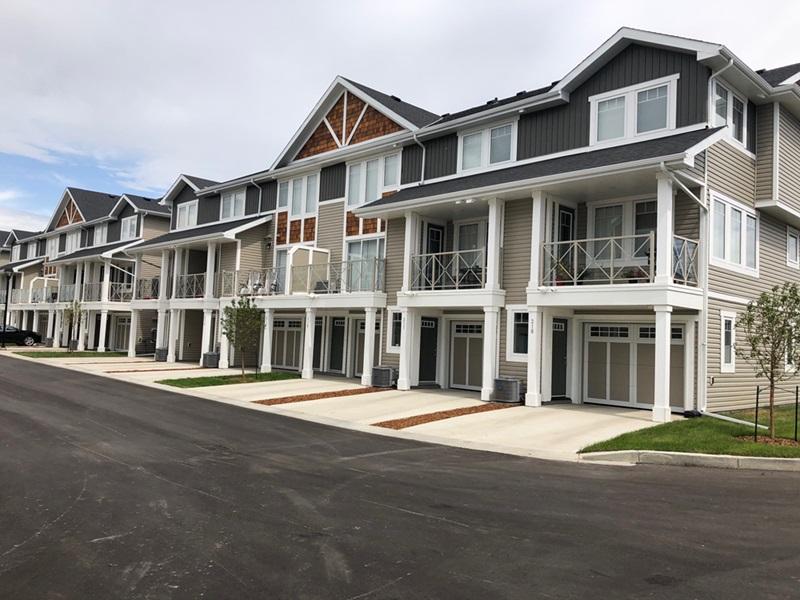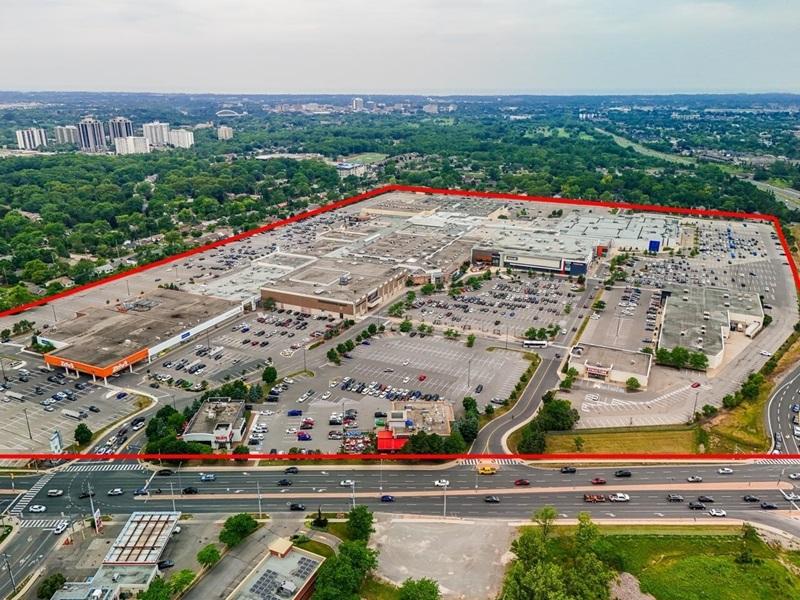
Starlight Capital CEO and chief investment officer Dennis Mitchell. (Courtesy Starlight)
The issue of distress was a central focus for four prominent Canadian equity investors who participated in a virtual discussion about their companies and trends they are seeing in the commercial real estate market.
The forum was a part of the recent RealCapital virtual conference, which was based in Toronto.
Moderator William Jandrisits, managing partner of Normera Capital Partners, said he hasn’t yet seen Canadian banks hold distress sales of assets like their U.S. counterparts, but wonders if they may arise due to the impact of COVID-19 and other factors currently hurting businesses.
“We are a very different animal — certainly in the public markets, and I would say in the private markets as well — compared to the United States,” said Starlight Capital chief executive officer and chief investment officer Dennis Mitchell. “Our market is way more concentrated in six key markets.”
Mitchell explained real estate entities in Canada have closer relationships, which makes for tighter underwriting. Canada also puts an increased focus on sustainability and resiliency while the U.S. is more focused on growth.
Investors expect more distress sales to arise
However, Mitchell said there is distress in the retail and publicly traded seniors housing market sectors, which could present acquisition opportunities. He believes more distress could creep in if more owners are forced to deal with rent collection challenges.
Forum Equity Partners founder and CEO Richard Abboud said his firm recently acquired a property from receivership, but it was operationally distressed as opposed to financially distressed.
Canadian government relief programs have helped to introduce liquidity into the system during the pandemic, which cut back on mortgage defaults. While Abboud feels the Canadian commercial real estate industry is generally healthy, he’s poised to take advantage of distress opportunities which arise in the hotel sector.
Blair McCreadie, head of Canadian real estate and fund manager for Fiera Real Estate, said tenants are struggling to pay rent in some businesses and there’s distress among private owners of small strip plazas, hotels and motels.
He expects some asset classes will experience business failures, particularly outside Canada’s six major cities (Toronto, Vancouver, Montreal, Ottawa, Calgary and Edmonton).
About $65 billion in commercial mortgages weren’t paid in Q4 2020, McCreadie noted, but lenders seem optimistic there’s light at the end of the tunnel following the lifting of pandemic restrictions.
“At the upper end of the capital stack, where it’s institutional, it’s a different world, but there is distress going on out there,” said McCreadie.
KingSett Capital executive managing director of investments Colin Baryliuk said he’s not seeing distress, but believes we’re in a period of illiquidity:
“We’re not seeing a lot of transactions to benchmark what distress looks like.”
Baryliuk and McCreadie said many pension funds have significant retail components in their portfolios. They’ll have to rebalance at some point and might not receive much demand for those properties unless prices are discounted.
Fiera
Fiera Real Estate is a subsidiary of Fiera Capital Corporation, a $180-billion operation with a wide range of investments. Fiera Real Estate has $5 billion of assets under management across Canada in four major asset classes, with 12 active risk-differentiated investment vehicles and 23 active developments.
Fiera Real Estate employs about 55 in Canada and 25 in the United Kingdom, where it added a platform similar to its Canadian real estate arm in 2019. It has 63 assets valued at approximately $1.3 billion.
Fiera Real Estate doesn’t have exposure to retail, is heavily weighted in industrial and wants to become more involved in multiresidential. Its portfolio includes some seniors housing, which McCreadie said has liquidity issues but is still performing well.
Fiera Real Estate has more than $750 million to deploy in a variety of strategies and McCreadie said it’s looking for opportunities.
Joint ventures are very important, particularly in development, where all projects are done with local partners. McCreadie said its ownership stakes vary from 25 to 90 per cent.
Fiera Real Estate can also facilitate development through construction and mezzanine financing vehicles.
Forum Equity Partners
Forum was founded in 1996 and targets residential-focused real estate — including student housing, co-living spaces and workforce housing — and urban infrastructure. The Toronto-based, 22-person company also has retail and office properties in its portfolio, and the value of its assets owned and managed in North America exceeds $1.3 billion.
“We’ve really re-energized ourselves and are going from a principal investment firm to a co-investing asset manager,” said Abboud.
Forum is involved with projects solely, with partners, as a capital provider and as a co-developer. Developments range in value from about $30 million to $150 million, according to Abboud.
Forum is primarily focused on equity as opposed to debt financing.
KingSett Capital
KingSett was founded in 2002 and has raised $11 billion of equity for its growth, income, urban, mortgage and affordable housing strategies. The 125-person Toronto-based company has completed $40 billion of acquisitions, dispositions and mortgage lending, and owns interests in a $15-billion portfolio in all major asset classes across Canada.

Colin Baryliuk, KingSett Capital executive managing director of investments. (Courtesy KingSett)
Baryliuk said KingSett has $500 million in equity in its growth strategy which it’s looking to deploy over the next couple of years. It also has $240 million of capital on call in its core strategy and $300 million in equity on call in its urban fund.
The firm is seeking direct investment, joint ventures and debt opportunities.
“Debt is a form of joint venture and there are lots of instances where a debt opportunity becomes an equity opportunity or vice versa,” said Baryliuk.
Debt and equity investments are both great ways to mitigate risk, especially in risky asset classes like hotels, according to Baryliuk. KingSett prefers to find debt opportunities and, if an equity opportunity arises, that it be preferred equity to protect downside risk, he added.
“We’ll always look at trading off the last dollar if you can take off a little bit more risk, or have a preferred interest as opposed to trying to make a lot of money on the back end,” said Baryliuk.
Baryliuk said KingSett’s senior fund is lowest on the risk spectrum and tries to deliver a seven to eight per cent return, while the opportunity fund is highest on the risk spectrum and aims to deliver a return of more than 20 per cent.
There are other funds in between, all designed to have appropriate risk-weighted returns.
Starlight
Starlight Capital is a wholly owned subsidiary of Starlight Investments, a $20-billion asset management firm that owns 60,000 apartment units in Canada and 10,000 in the U.S. It’s focused on multiresidential properties, has a global range of investors and more than 300 employees.
Starlight Investments invested $2.7 billion in 2020 and Mitchell said it has plans to raise and deploy significant capital this year. The firm is looking for large portfolio transactions where it can take advantage of inefficiencies.
“We always have skin in the game, usually around 10 per cent and up to $30 or $40 million,” said Mitchell. “In addition to that, most of the senior executives at Starlight will also invest in any of the large transactions that we do. There’s a lot of alignment from that standpoint.”
Starlight Capital has $250 million in assets under management and is adding to its 20 employees. It allocates capital globally in multiple real estate and infrastructure classes. Its senior executives also invest in all of its projects.
“Starlight Capital is always raising capital and we’re in the market for a U.S. residential play that goes into one of our operating memorandums,” said Mitchell. “We’re raising $10 to $20 million for that.
“We’re very, very active across all four business units and mainly focused on residential and multiresidential. That’s where we see the strength, and in the publicly traded markets in particular that’s where we’re seeing discounts to net asset value as well.”
The industrial asset class has made a strong recovery in publicly traded markets, but retail is struggling and trading at a discount to net asset value.
While fundamentals remain robust in multiresidential, Mitchell said “publicly traded securities are trading at a five to 10 per cent discount to net asset value despite the fact that values are increasing, rent is being collected, occupancies are robust, distributions are being increased and fundamentals remain very, very robust going forward.”
Mitchell expects that discount to net asset value to shrink and that the true value of those assets will be recognized.











